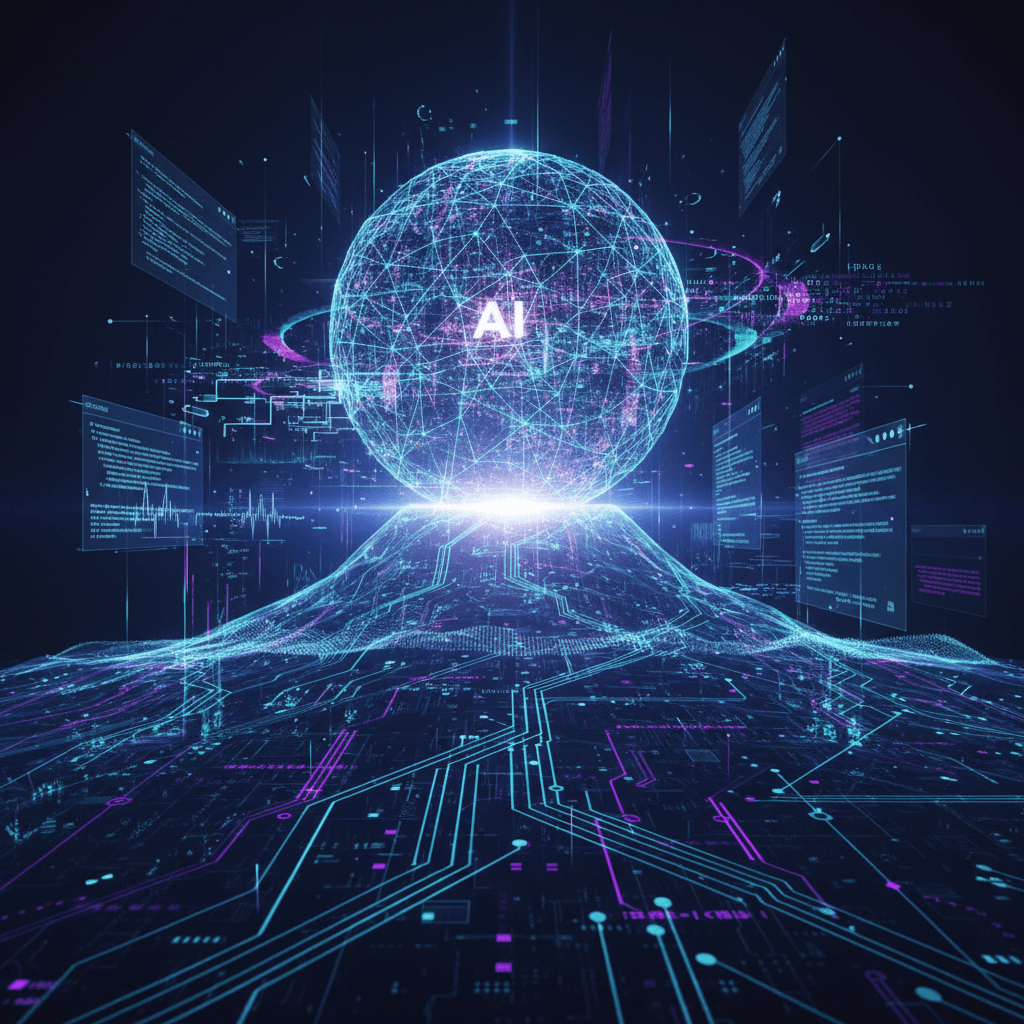Google's Gemini 3 Pro Unleashes Next-Gen AI, Seizes Industry Lead
Google's Gemini 3 Pro redefines AI leadership, achieving breakthroughs in reasoning, multimodality, and autonomous agent development.
November 18, 2025

In a significant development that alters the competitive landscape of artificial intelligence, Google has released Gemini 3 Pro, a next-generation model that, according to industry analysts and a swath of new performance benchmarks, now leads the field. The debut of Gemini 3 Pro signals a major leap forward in AI capabilities, with substantial gains in reasoning, multimodal understanding, and coding, positioning Google ahead of rivals in the fiercely contested AI race. This new model not only outperforms its predecessors and competitors on numerous standard tests but also introduces a sophisticated new platform for AI agents, hinting at Google’s broader ambitions for a future where AI is more deeply integrated into complex digital workflows.
The performance metrics released by Google paint a picture of a model that has set a new standard for intelligence and capability.[1][2] Gemini 3 Pro has demonstrated state-of-the-art results across a wide array of industry benchmarks, showing significant advantages in areas that have historically challenged even the most advanced models.[3] For instance, in tests of PhD-level reasoning such as Humanity's Last Exam, Gemini 3 Pro scored 37.5% without the use of any external tools, substantially outperforming competitors.[4][5] On the GPQA Diamond benchmark for scientific knowledge, it achieved a score of 91.9%.[4] The model’s mathematical prowess is particularly noteworthy, achieving a new state-of-the-art score of 23.4% on the demanding MathArena Apex benchmark and a perfect 100% on the AIME 2025 mathematics problems when allowed to use code execution.[6][7] These results suggest a deeper and more nuanced understanding of complex logic and problem-solving than previously seen.
A core advantage of Gemini 3 Pro lies in its native multimodality, the ability to seamlessly understand and process information across text, images, video, and audio.[6][8] This is not simply a feature but a foundational element of its architecture, allowing for more profound contextual insights.[9] The model has posted breakthrough scores of 81% on the MMMU-Pro benchmark for multimodal understanding and reasoning and 87.6% on Video-MMMU for knowledge acquisition from videos.[6][4] Its proficiency in visual reasoning is further highlighted by its 31.1% score on the ARC-AGI-2 visual puzzle benchmark, a significant leap over previous models.[7][5] In practical terms, this allows Gemini 3 Pro to analyze complex documents containing charts and text, understand the content of a website, or even analyze sports footage to provide technical feedback.[9][8] This deep integration of different data types is a crucial step towards creating more intuitive and capable AI assistants.
Beyond its raw processing power, Google has strategically focused on Gemini 3 Pro’s ability to function as a tool for creation and development, particularly in the realm of coding. The model has shown superior performance in agentic coding tasks, which involve AI taking a more autonomous role in software development.[10] It achieved a score of 54.2% on Terminal-Bench 2.0, which tests an AI's ability to operate a computer via a terminal, outperforming its main rivals.[7] On the SWE-Bench Verified test for agentic coding, Gemini 3 Pro scored 76.2%.[6][11] Coinciding with the model's release, Google introduced Google Antigravity, an agentic development platform that allows developers to collaborate with intelligent agents that can autonomously plan and execute complex software tasks across an editor, terminal, and browser.[12][2] This platform, powered by Gemini 3, represents a new paradigm for software development, moving from simple code generation to higher-level, task-oriented collaboration between human and AI.[12][11]
In conclusion, the launch of Gemini 3 Pro represents a pivotal moment in the evolution of artificial intelligence. Through a combination of superior performance on established benchmarks, groundbreaking multimodal capabilities, and a forward-looking vision for agent-based development, Google has made a compelling case for its leadership in the AI performance race. The model is being rapidly integrated across Google's ecosystem, from Search and the Gemini app to developer tools like Vertex AI and the new Antigravity platform, ensuring its advanced capabilities reach a broad audience.[2][13] As the industry digests these new capabilities, the focus will inevitably shift to how competitors will respond and how this new level of AI performance will translate into tangible, real-world applications that redefine user experiences and professional workflows. The era of more autonomous, deeply reasoning, and truly multimodal AI appears to have arrived.